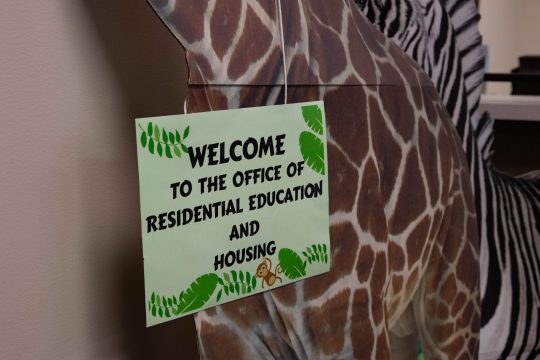The job of Community Advisor on campus has been undergoing changes this year, seeing a change in job description on April 15. The new positions were announced Tuesday, April 26. This change in job description resulted in a delayed CA selection process, which has affected applicants.
The initial deadline to apply to be a CA was Feb. 28. From there, the selection process was projected to only take a few weeks. However, because of the changing job description, the selection process was delayed, and applicants have been uncertain whether they will get the job or not.
The new system will adopt a hybrid approach, splitting the current CA position into two new roles. According to Assistant Director of Residential Education Bonny Autumn Sucherman, the position will focus on first-year students while the other will focus on returning students.
The CAs with a first-year focus will work exclusively with first-year students. While there is some overlap in responsibilities, first-year CAs are expected to work an average of 20 hours a week, which is twice the expected average of current CAs and the new returning-student CAs. Sucherman gave the example of “open-door hours” as one of the new responsibilities making up First-Year CAs’ increased work hours.
The two-week training period for CAs before school starts will be better compensated, up to $300 from $250 last year, a change that current CAs requested at the beginning of the school year. First-year CAs will earn a $7,773 yearly stipend, and Upper-year CAs will earn $3,498, each divided up into biweekly payments.
Chris Clarke, Dean of Students, commented on the changes. According to Clarke, the changes were made with the goal of bolstering the CA program and better compensating employed students for their work. Clarke attributed the delay to the numerous administrative steps that had to be taken before the decision could be finalized.
“These changes hope to improve the CA experience and the impact that our ResEd staff can have on the lives of our residential community,” Clarke said.
Sucherman added that the changes also aim to better foster distinct first-year communities.
Sucherman ascribed the delay to an unexpected opportunity to push through planned changes to the CA position before the next school year. According to Sucherman, when the CA applications were opened in January, the plan was to finish the selection process before Spring Break.
“We honestly didn’t think that these changes were going to come to fruition, which is why we moved forward with our process as is,” Sucherman stated. “All of the sudden, very far into that planned timeline, we were hearing that we should pause our process and that we had the opportunity [to update the CA position].”
According to Sucherman, the impact to current applicants was weighed against the potential benefits to students and the CA program overall.
One anonymous applicant spoke on their experience of the situation. While the student liked the new arrangement because it makes the CA system fairer, the student was frustrated by the delay and felt they had been kept in the dark about the situation.
As an international student, the uncertainty about the position has delayed their process of booking plane tickets and has subsequently cost them money as ticket prices increase. They hope that more consideration will be given to the specific situation of international students in the future, particularly in communication about the specifics.
“I just hope in the future that they’re aware that a lot of CAs are international kids and […] we need to know stuff way in advance,” said the applicant.
Another anonymous student spoke on how the delay has impacted them. The delay has caused the student to second-guess if they still wish to be a CA. The student feels that the delay does not bode well for how future issues will be handled while on the job. They were also frustrated with how the delay has left them unsure whether they need to find a roommate for next year or not.
Clarke lamented the unfortunate timing, altering of the selection timeline and limited communication as details were finalized. Still, he is hopeful that the changes will enable a more student-centered focus for employees and residents.



